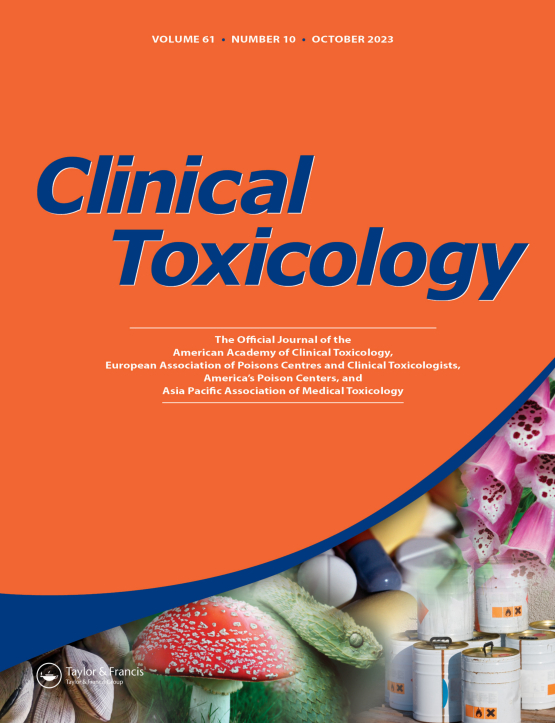Associate Editor needed for
Clinical Toxicology
Deadline
About the role
About the Journal

Clinical Toxicology is a subscription-based journal that publishes peer-reviewed scientific research and clinical advances in clinical toxicology. The journal reflects the professional concerns and best scientific judgment of its sponsors, the American Academy of Clinical Toxicology, the European Association of Poisons Centres and Clinical Toxicologists, America's Poison Centres and the Asia Pacific Association of Medical Toxicology and, as such, is the leading international journal in the specialty.
Clinical Toxicology aims to be the journal of primary interest to practicing clinical toxicologists, whether in hospitals, poison centres, academia, government or industry. The journal is relevant to all professionals at the interface of clinical toxicology with acute care, occupational and environmental medicine, public health, regulatory toxicology, pharmacology and pharmaceutics, and analytical and forensic pathology.
Key Skills and Attributes
Here are the skills and attributes we are looking for in successful applicants for the Associate Editor position:
- Experience in academic publishing as an author, reviewer, Editorial Board Member or Editor.
- A track record within clinical/medical toxicology, including multiple published academic papers.
- The capacity to devote time to the role, and to attend Editorial Board meetings and training sessions as needed.
- The ability to ensure that submitted manuscripts are considered in a prompt, consistent and professional manner.
- The ability to confidently use the Scholar One online peer review management system (training will be provided)
- The ability to read, summarize, and make decisions based on independent reviewer reports.
- The ability to work with authors to assure fluency of English and compliance with the style and format of the Journal before final acceptance
- A commitment to communicating promptly, consistently, and professionally with authors during the peer review process.
- A strong commitment to ethical rigour and commitment to ensure that the journal adheres to strict ethical standards at all times.
The successful candidates will receive an annual contracted Editor Expense payment. The role will formally begin from 1st January 2026.
Application instructions
Applications should include your CV and a Cover Letter. Your Cover Letter should explain why you believe you are a suitable candidate to become an Associate Editor for Clinical Toxicology.
For any questions, please contact Ross.Laman@tandf.co.uk
We are also hiring for an Editor-in-Chief for Clinical Toxicology. Details for this position can be found here.
Did you know?
Joining a Taylor & Francis journal as an Editor or Board member brings many personal and professional benefits.
Find more roles in your subject area with our Editor Recruitment search tool.
The journal is committed to ensuring diversity, equity and inclusion within its editorial team and decision making processes. All applications will be treated as strictly confidential, and each will be judged on its merits without bias for seniority of institutional affiliation. We do not discriminate on the basis of race, color, ancestry, national origin, religion, or religious creed, mental or physical disability, medical condition, genetic information, sex (including pregnancy, childbirth, and related medical conditions), sexual orientation, gender identity, gender expression, age, marital status, military or protected veteran status, citizenship, or other protected characteristics.
